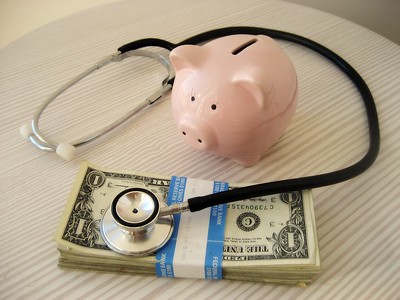Adderall is a commonly prescribed medication for attention deficit hyperactivity disorder (ADHD) and narcolepsy, but the cost of this medication can be a major concern for those without insurance. If you’re wondering, “How much does Adderall 30 mg cost without insurance?” you’re not alone.
In this article, we’ll explore the cost of Adderall without insurance, discussing the factors that affect the price and ways to save money on this medication.
Whether you’re a current Adderall user or considering this medication, read on to discover everything you need to know about the cost of Adderall 30 mg without insurance.
Table of Contents
Understanding Adderall
What is Adderall?
Adderall is a prescription medication used to treat attention deficit hyperactivity disorder (ADHD) and narcolepsy. It is a combination of two stimulant drugs, amphetamine, and dextroamphetamine.
Adderall increases the levels of neurotransmitters dopamine and norepinephrine in the brain, which can help improve focus, attention, and impulse control.
Adderall 30 mg without Insurance
How much does Adderall 30 mg cost without insurance?
Adderall 30 mg is a prescription medication used to treat attention deficit hyperactivity disorder (ADHD) and narcolepsy.
The cost of Adderall 30 mg without insurance can vary depending on several factors, including the pharmacy, location, and dosage prescribed.
According to SingleCare, uninsured patients can expect to pay an average of $347 for a 30-day supply of 30 mg Adderall XR capsules, or $12 per day. The same website also reports that generic Adderall costs less than $8 with a SingleCare coupon.
GoodRx reports that without insurance, the cost of thirty tablets of 20mg brand name Adderall is around $284.54. However, the cost may vary depending on location and pharmacy. For example, Walgreens offers the cheapest option for Adderall at $215.28.
It is important to note that these prices are for the generic version of Adderall, which is typically less expensive than the brand-name version. Additionally, prices may be lower with a discount card or coupon.
Factors that affect the cost of Adderall 30 mg without insurance
Several factors can affect the cost of Adderall 30 mg without insurance. The following are some of the factors that can impact the price:
- Pharmacy: Different pharmacies may have different prices for Adderall 30 mg. It is important to compare prices from different pharmacies to find the best deal.
- Dosage: The cost of Adderall 30 mg can vary depending on the dosage prescribed. Higher dosages may cost more.
- Location: The cost of Adderall 30 mg can also vary depending on the location of the pharmacy. Prices may be higher in certain areas.
- Coupons and discounts: Some pharmacies may offer coupons or discounts that can help reduce the cost of Adderall 30 mg.
It is important to note that the cost of Adderall 30 mg without insurance can be expensive, especially for long-term treatment. Patients who are unable to afford the medication may be eligible for patient assistance programs or other forms of financial assistance.
How does Adderall work?
Adderall works by stimulating the central nervous system. It increases the release of neurotransmitters dopamine and norepinephrine, which are responsible for regulating mood, attention, and behavior. This increased release of neurotransmitters can help improve focus, attention, and impulse control.
Adderall is available in both immediate-release and extended-release formulations. Immediate-release Adderall is taken two to three times a day, while extended-release Adderall is taken once a day.
The extended-release formulation is designed to release the medication gradually throughout the day, providing a longer-lasting effect.
It is important to note that Adderall is a controlled substance and has a high potential for abuse and dependence. It should only be taken as prescribed by a healthcare provider and under close supervision.
Overall, Adderall is a widely used medication for the treatment of ADHD and narcolepsy. It works by stimulating the central nervous system and increasing the levels of neurotransmitters dopamine and norepinephrine in the brain, which can help improve focus, attention, and impulse control.
However, it is important to use this medication responsibly and under the guidance of a healthcare provider.
Alternatives to Adderall
For individuals who are looking for alternatives to Adderall, there are several options available.
These alternatives can be non-stimulant or over-the-counter, and they may be more affordable, have fewer side effects, or may be more effective for some individuals.
Non-Stimulant Alternatives to Adderall
Non-stimulant medications can be a good option for individuals who cannot tolerate the side effects of stimulants or who have certain medical conditions that make stimulants unsafe. Some non-stimulant alternatives to Adderall include:
- Strattera (atomoxetine): This medication is approved by the FDA for the treatment of ADHD. It works by increasing the amount of norepinephrine in the brain, which can help improve attention and reduce impulsivity.
- Intuniv (guanfacine): This medication is also approved by the FDA for the treatment of ADHD. It works by stimulating alpha-2 adrenergic receptors in the brain, which can help improve attention and reduce hyperactivity.
Over-the-Counter Alternatives to Adderall
Over-the-counter alternatives to Adderall are not as potent as prescription stimulants, but they may still be effective for some individuals. Some over-the-counter alternatives to Adderall include:
- Caffeine: Caffeine is a stimulant that can help improve focus and alertness. It is found in coffee, tea, and some energy drinks.
- L-theanine: L-theanine is an amino acid that is found in green tea. It can help reduce anxiety and improve focus.
- Omega-3 fatty acids: Omega-3 fatty acids are found in fish oil supplements and can help improve brain function.
While these alternatives may not work for everyone, they can be a good starting point for individuals who are looking for alternatives to Adderall. It is important to talk to a healthcare provider before starting any new medication or supplement.
Conclusion
In conclusion, Adderall 30 mg without insurance can be quite expensive. The cost of the medication varies depending on the pharmacy and location. However, the average cost of Adderall 30 mg without insurance is around $150 for a month’s supply.
It is important to note that there are ways to reduce the cost of Adderall 30 mg without insurance. One way is to use prescription discount cards, which can provide discounts of up to 80% off the retail price. Another way is to buy generic versions of the medication, which can be significantly cheaper.
It is also important to consider alternative medications that can be used to treat ADHD, such as Ritalin and Vyvanse. These medications may be more affordable and may have fewer side effects for some individuals.
Overall, the cost of Adderall 30 mg without insurance can be a barrier for individuals who need the medication to manage their ADHD symptoms. However, there are options available to reduce the cost and alternative medications to consider.
It is important for individuals to discuss their options with their healthcare provider to determine the best course of treatment for their needs.







